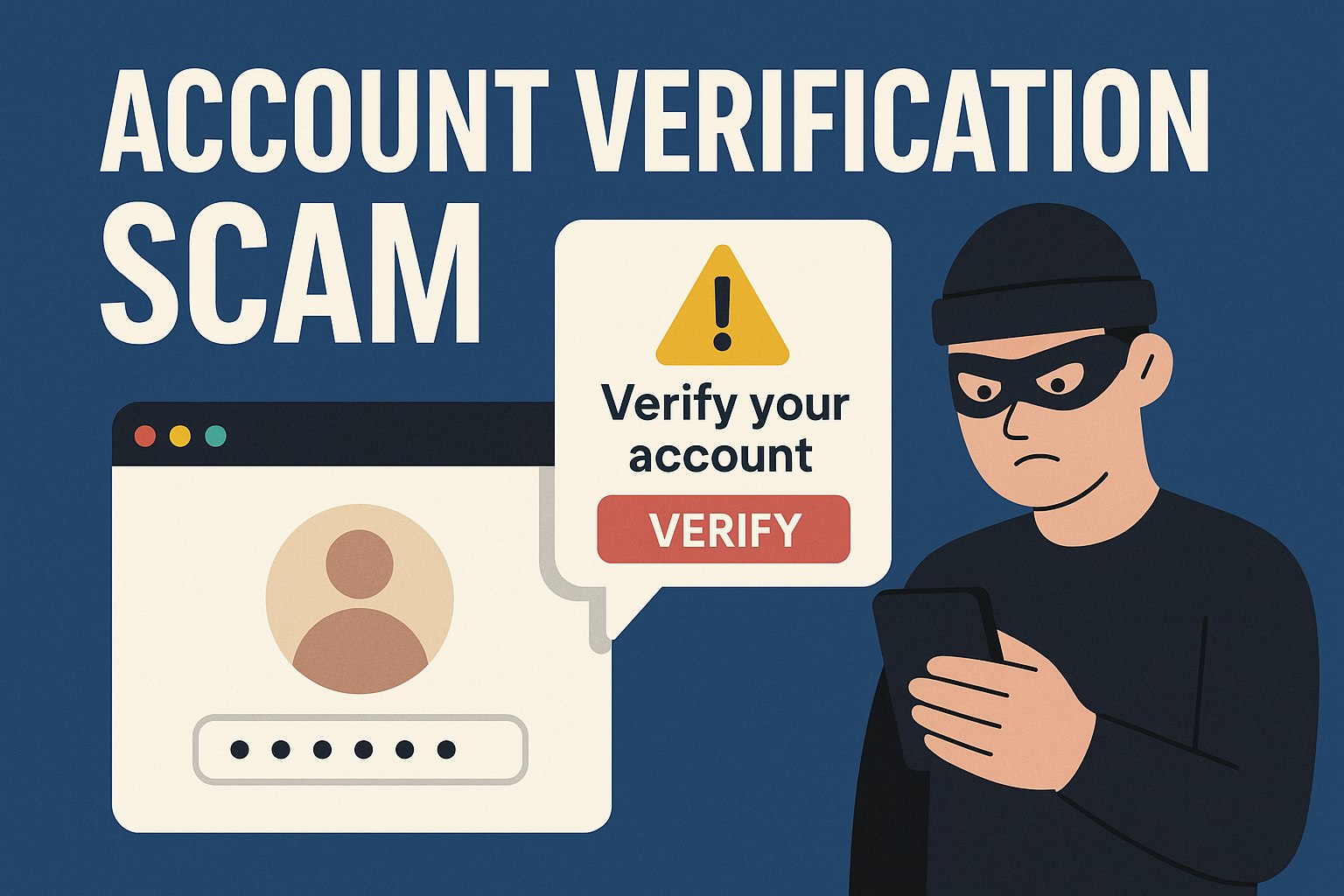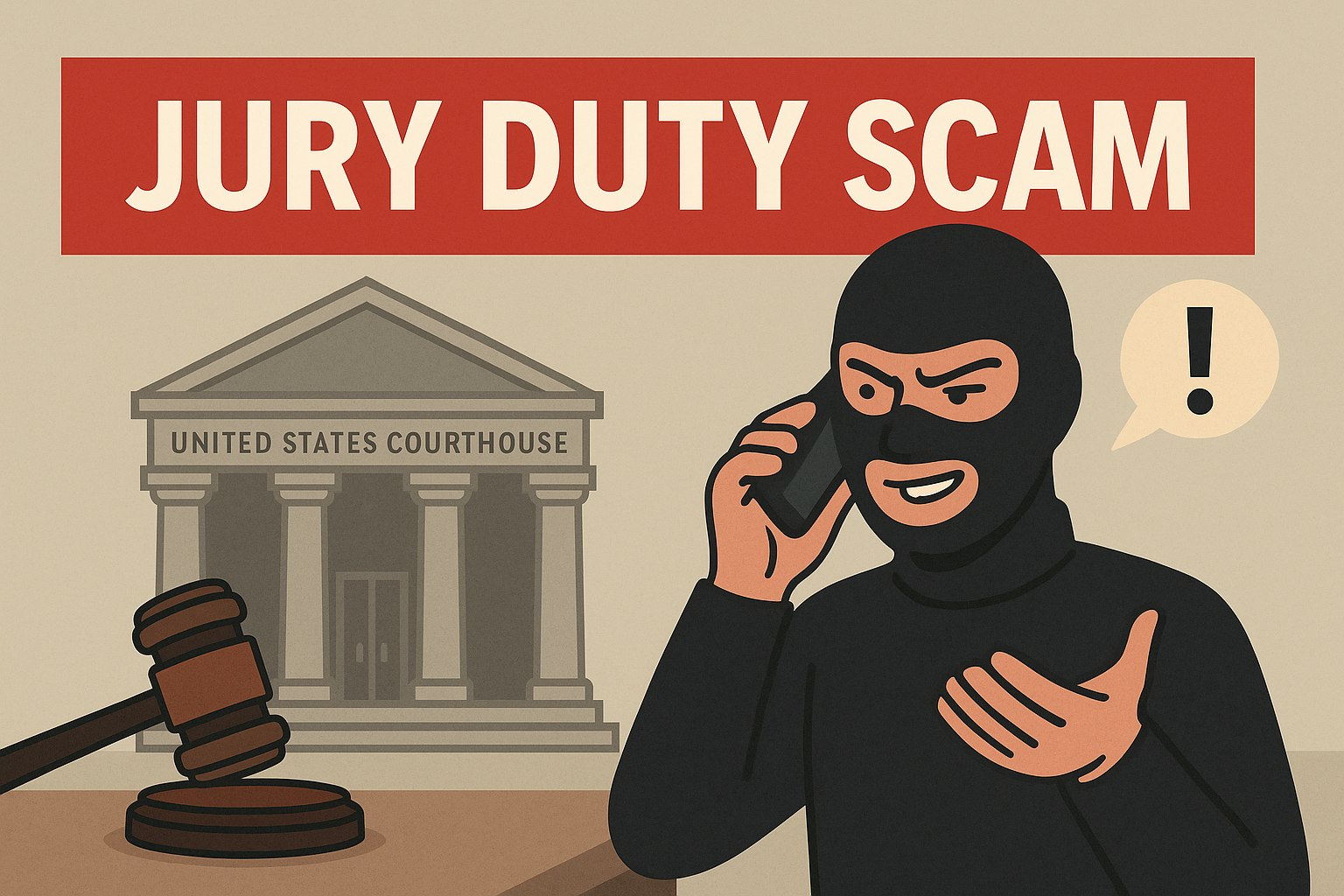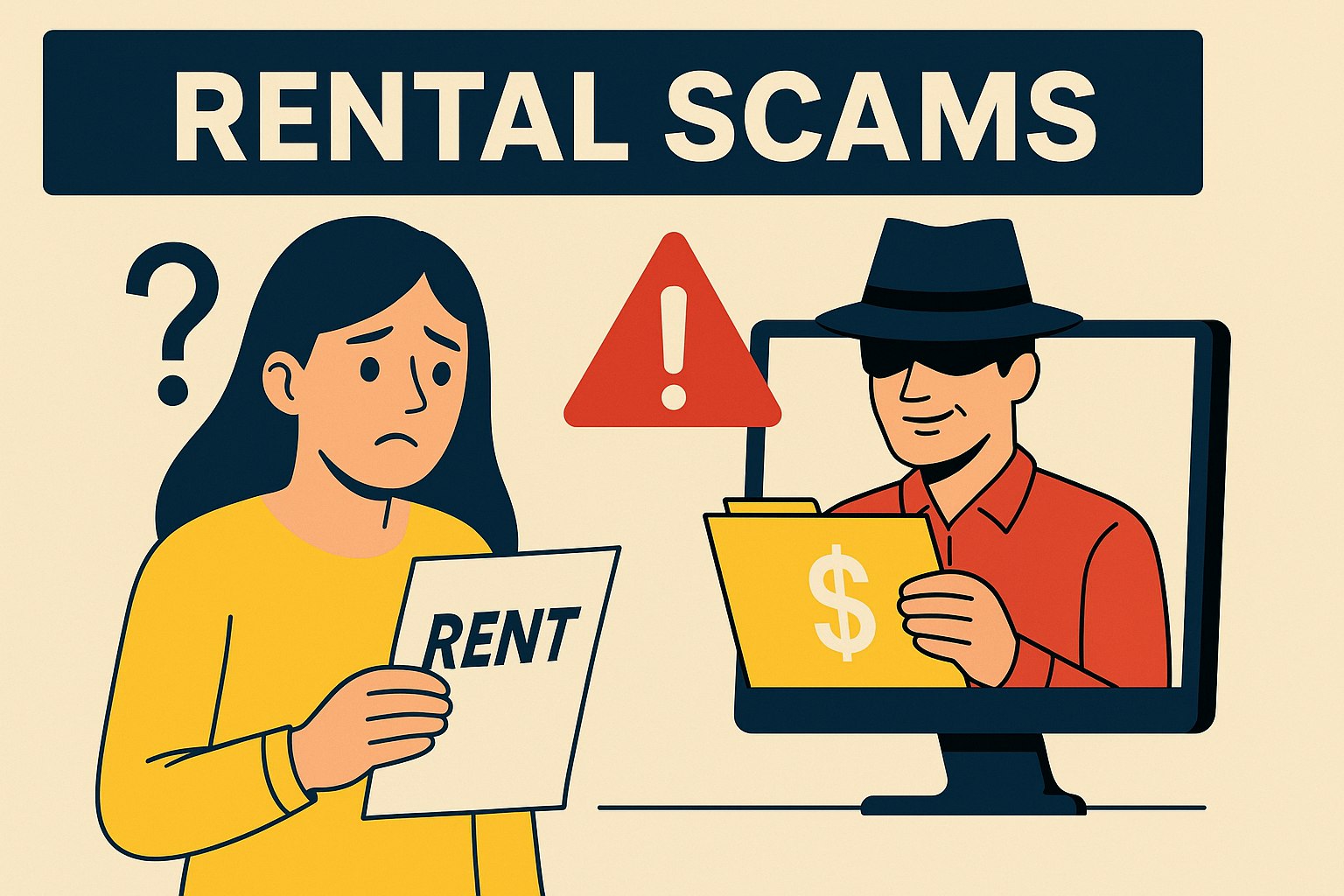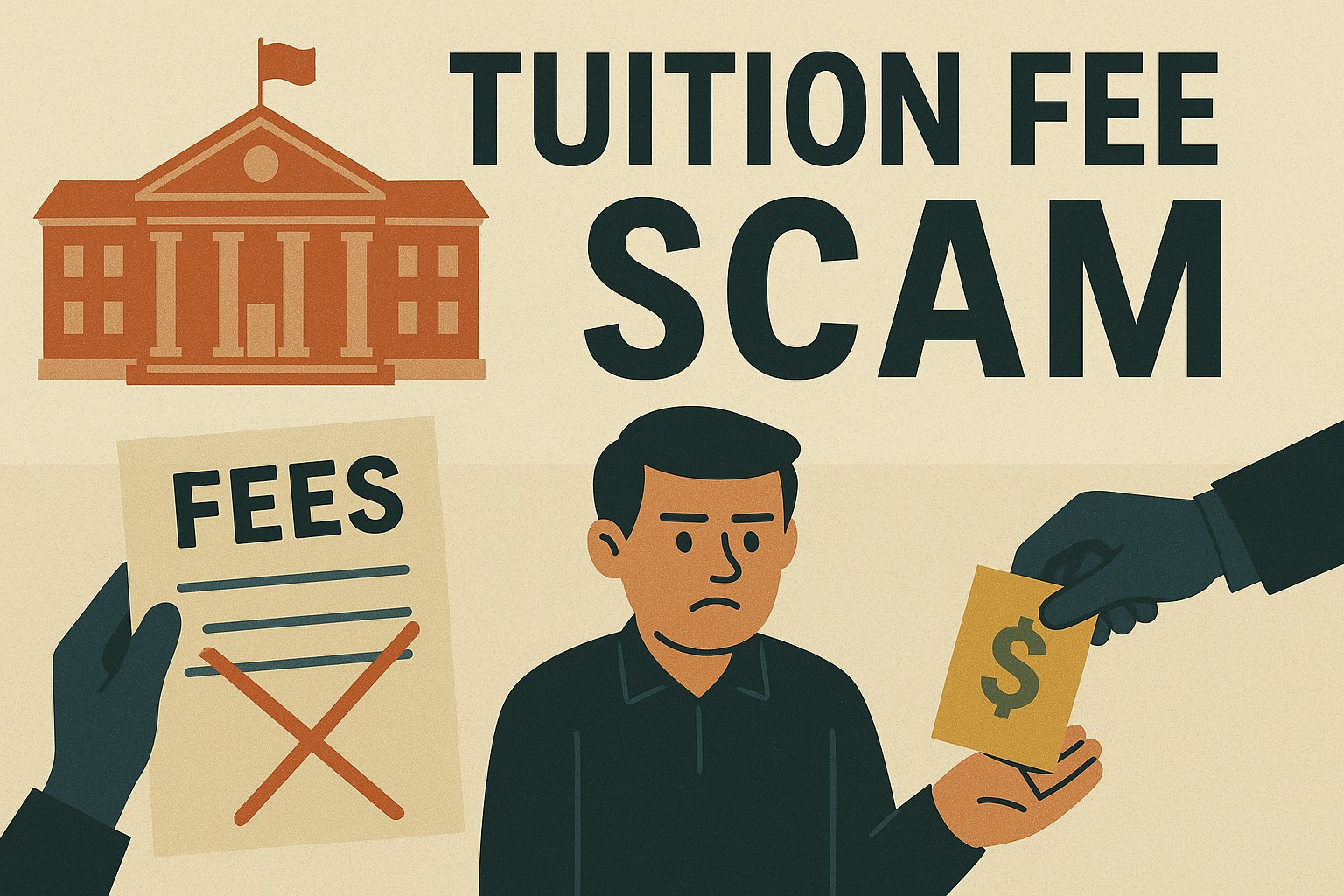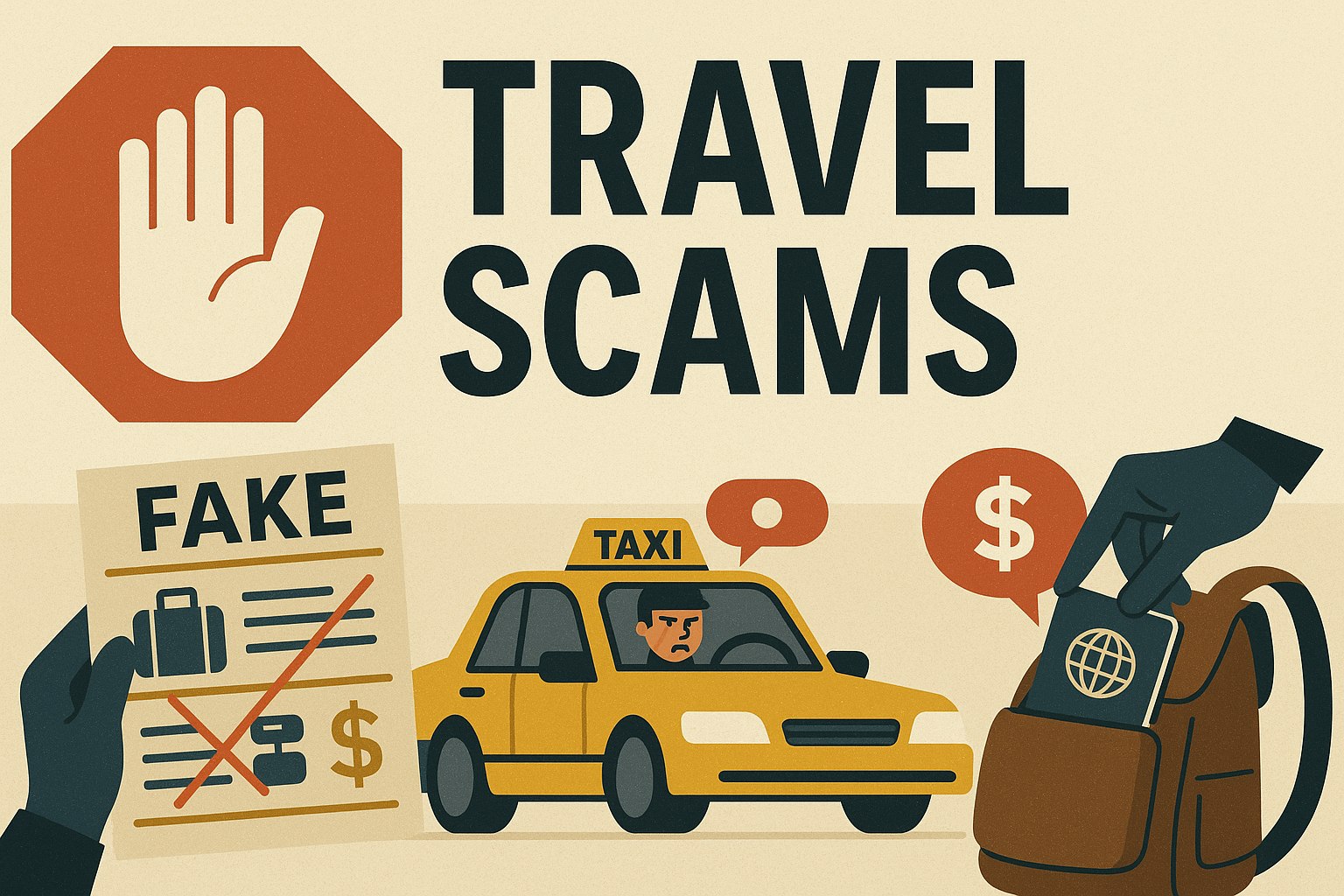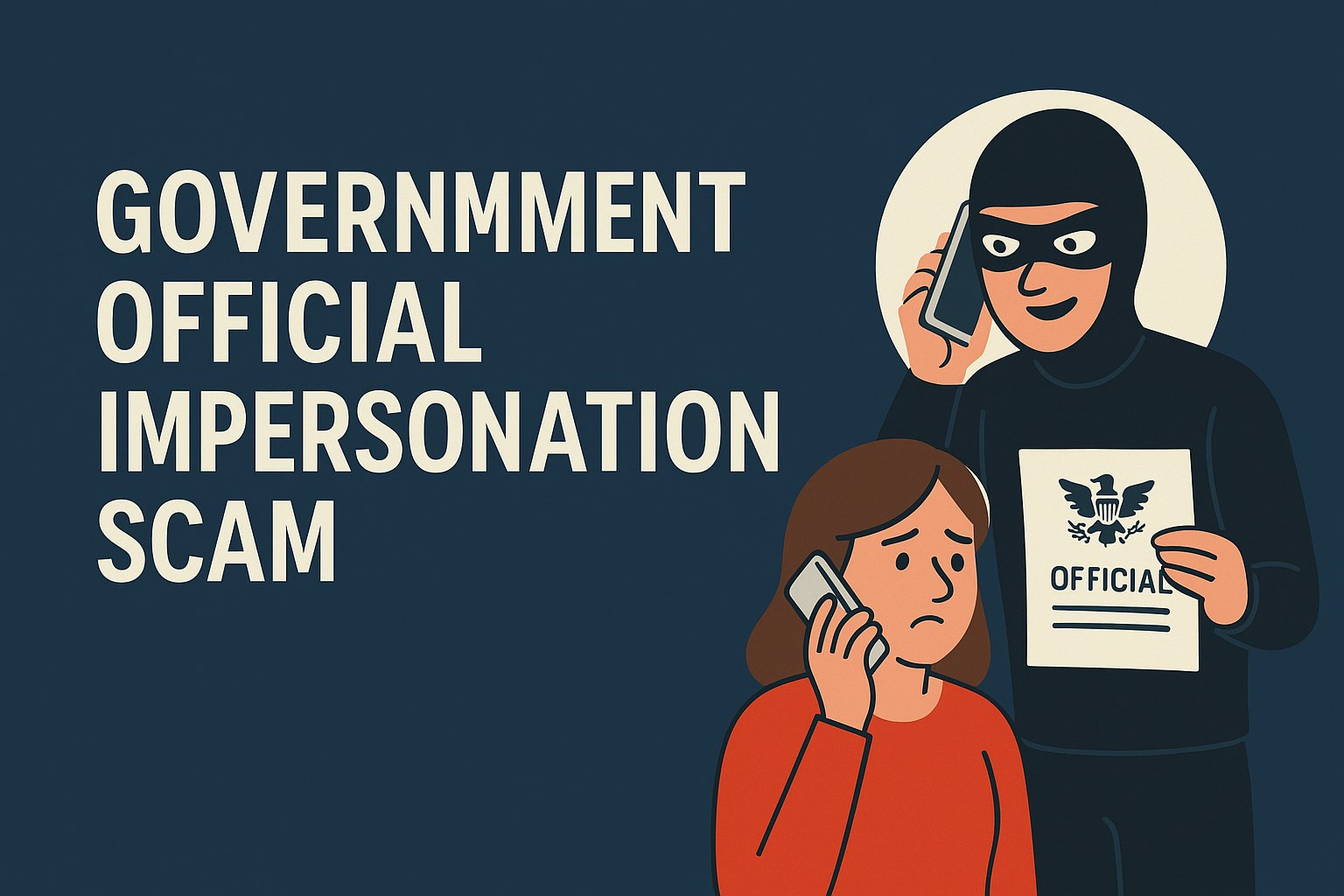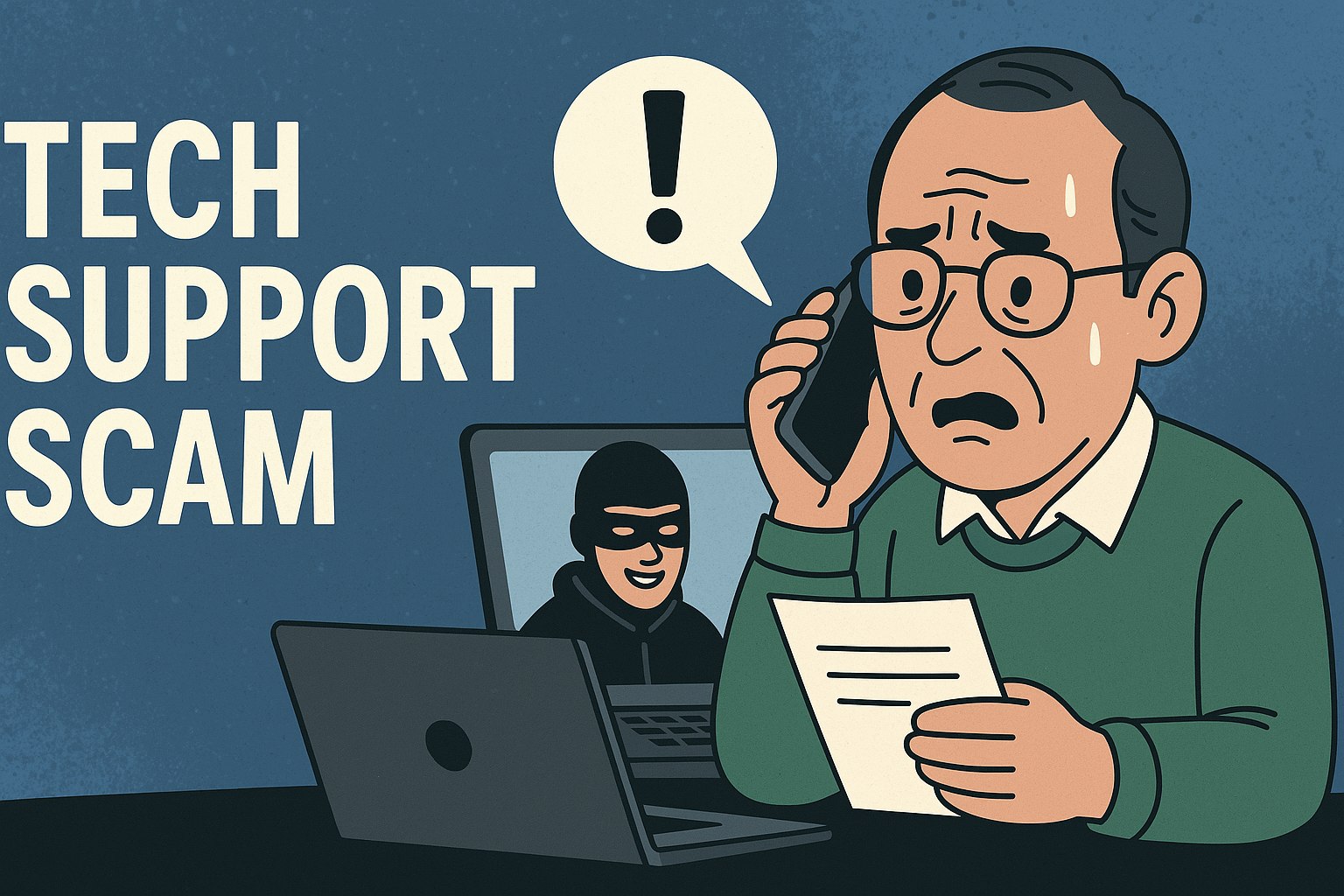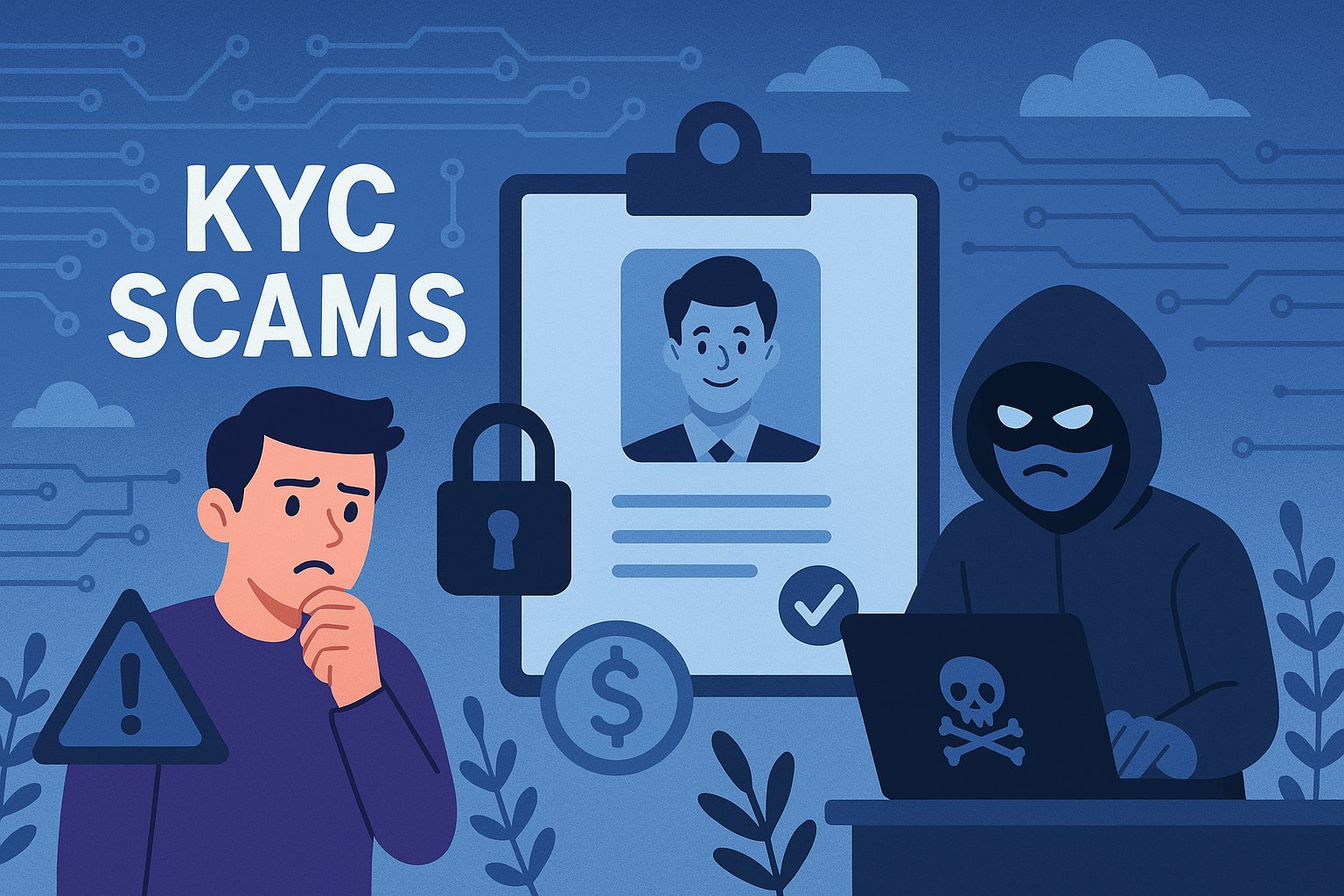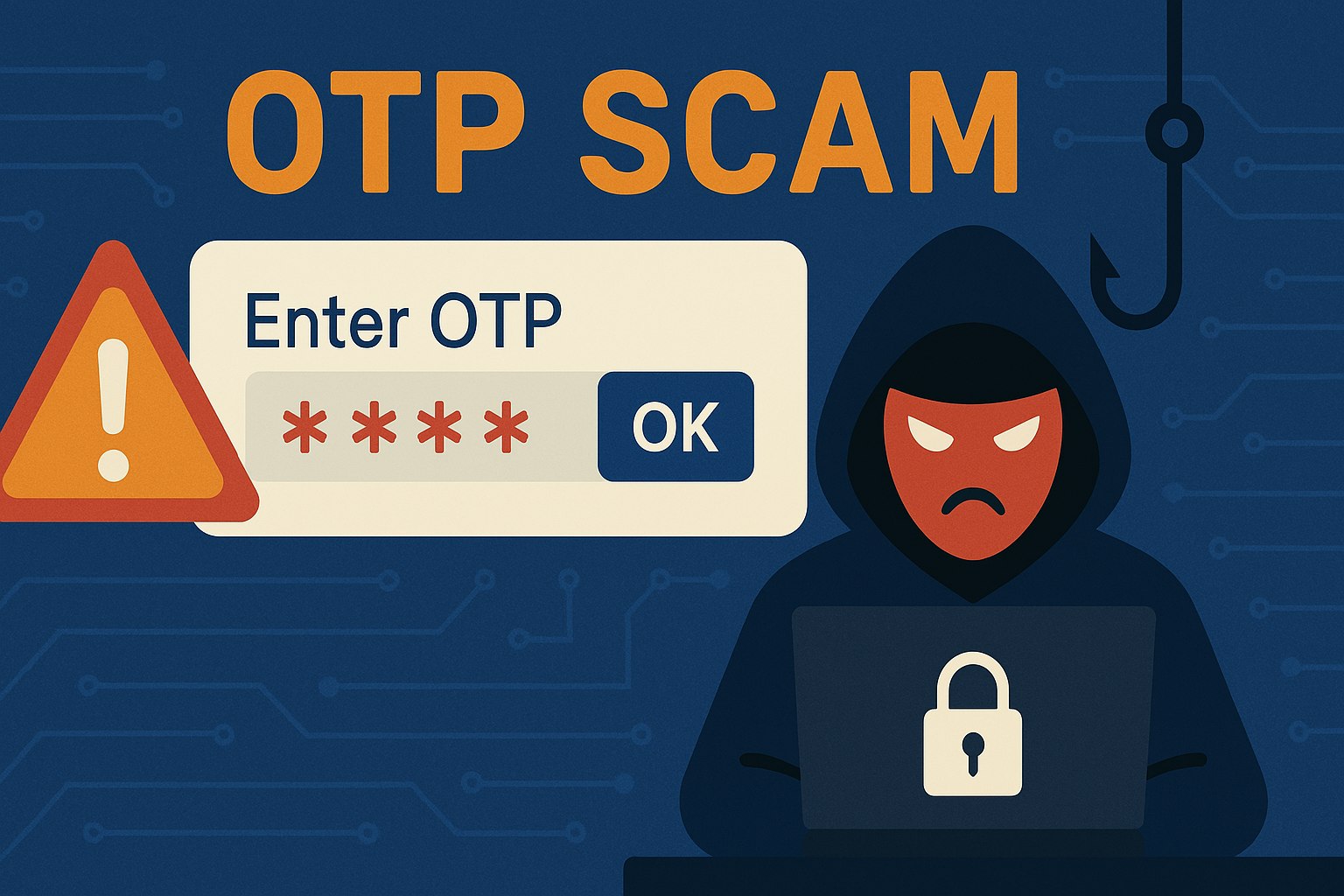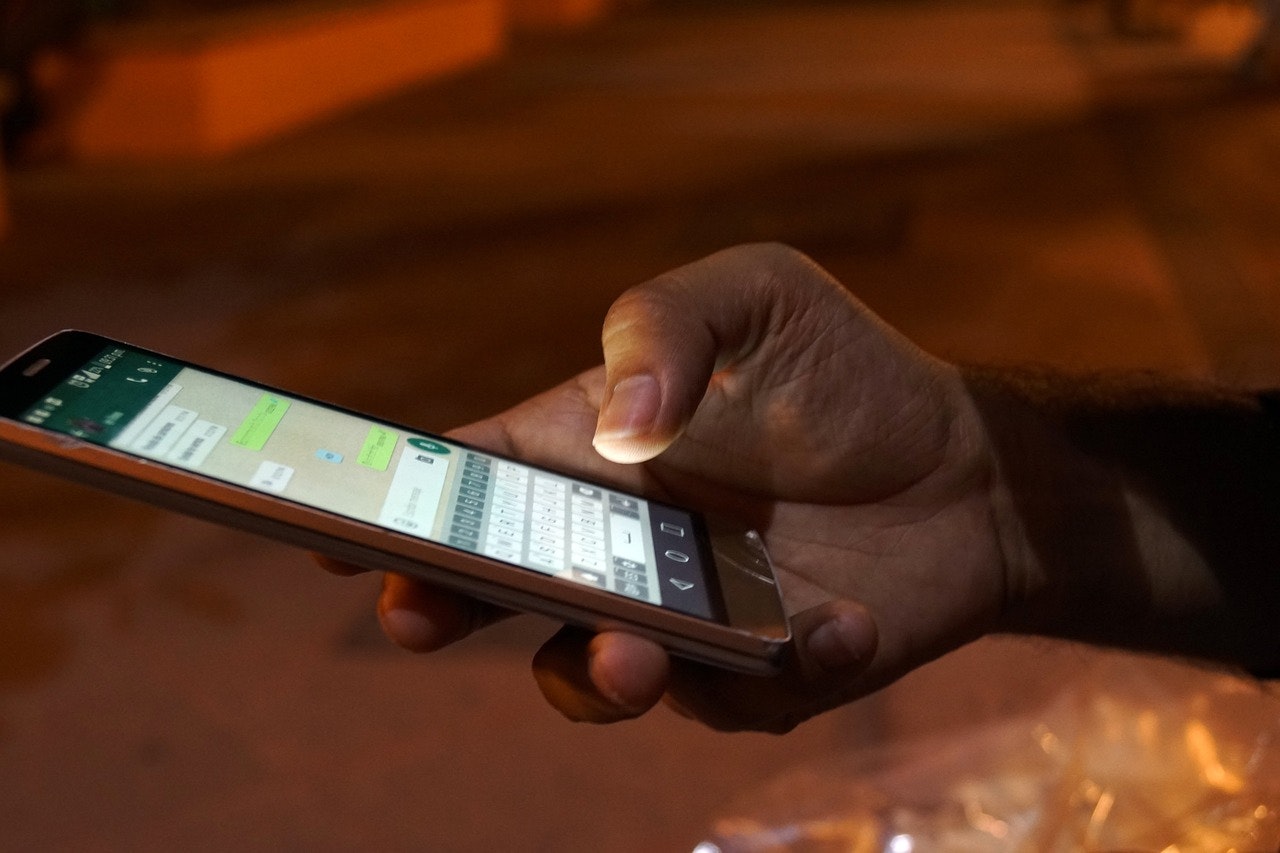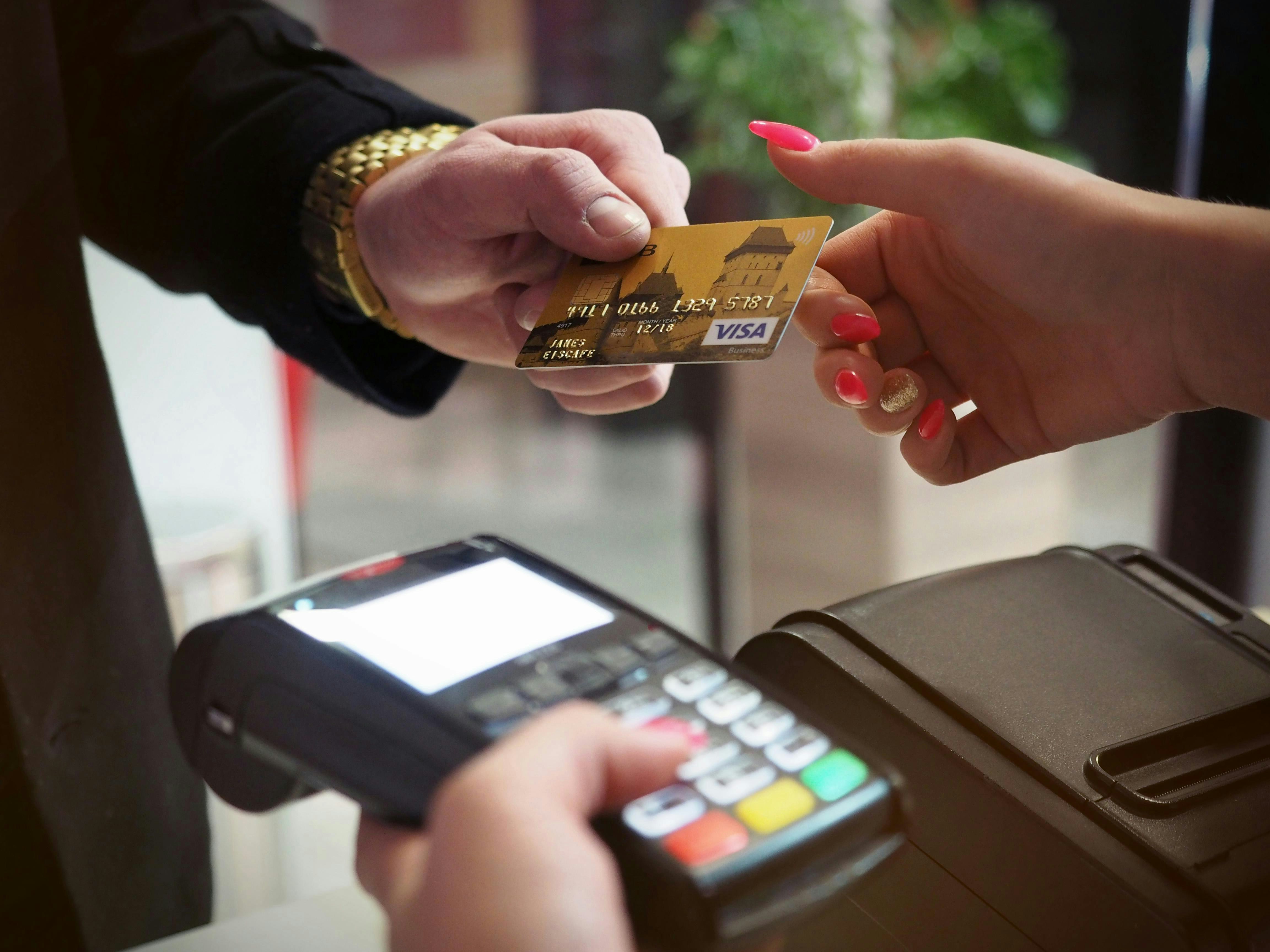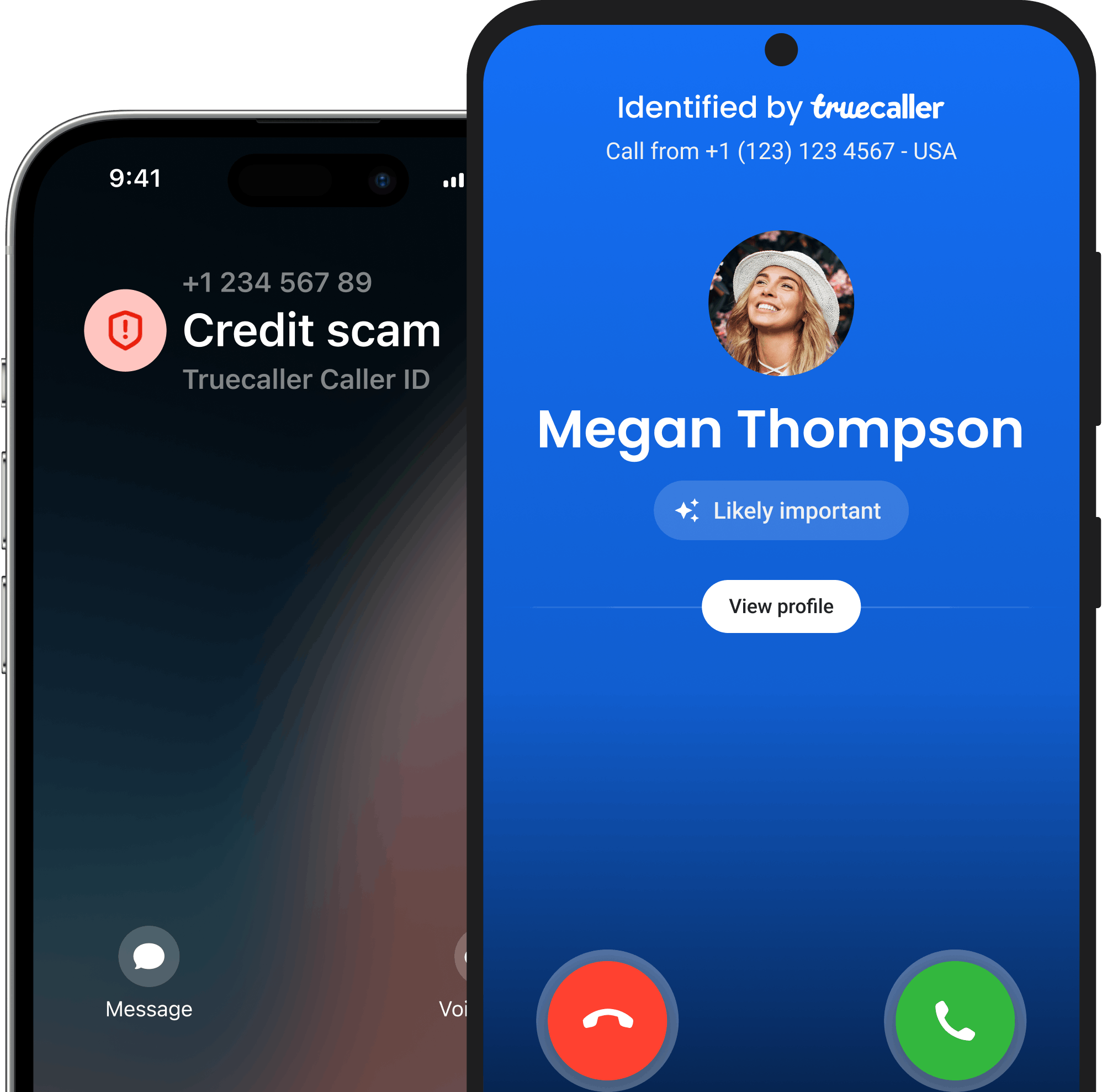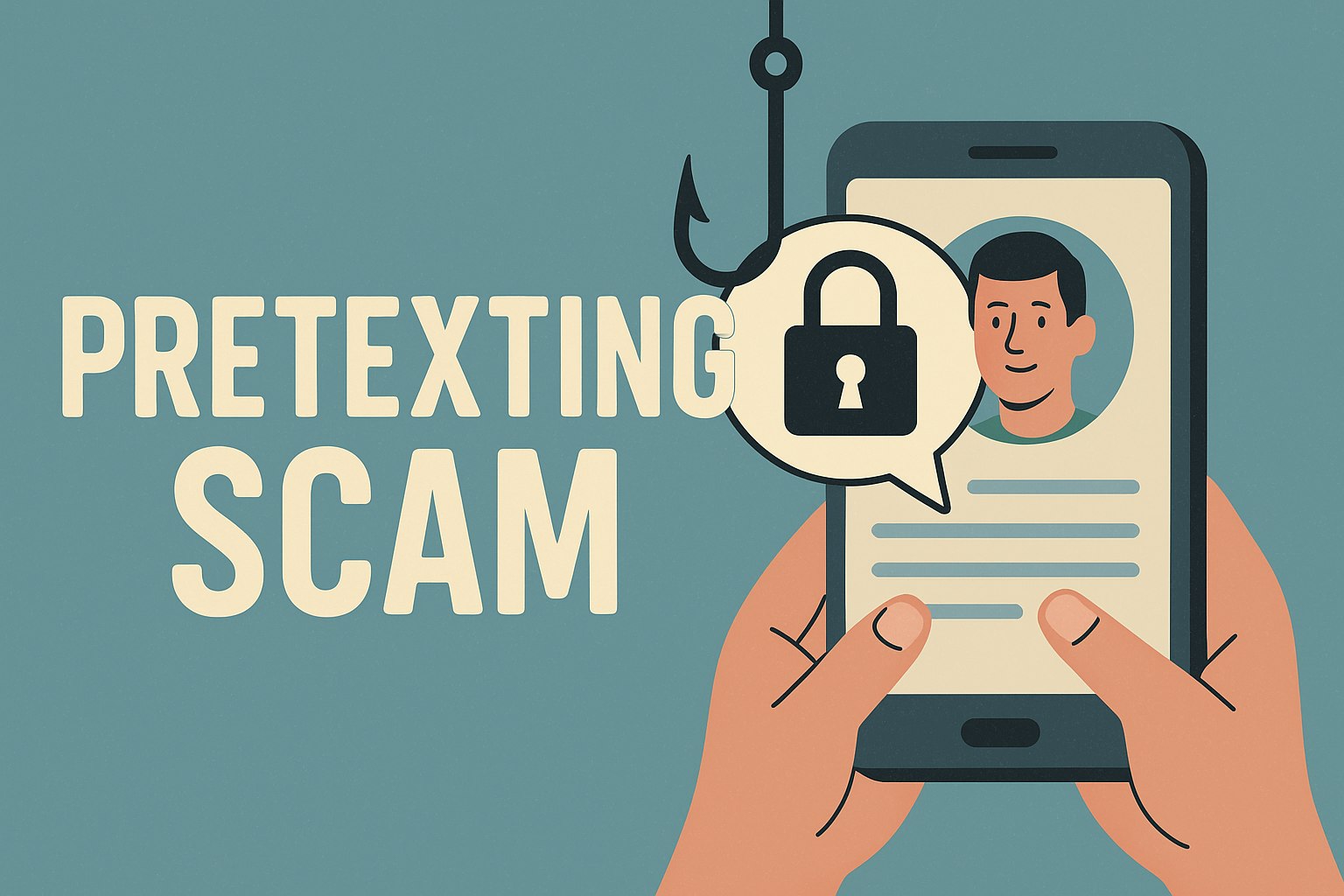
Pretexting Scam
What is a pretexting scam?
Most scams today are based on a pretext, a story that a scammer tells the victim in order to appear trustworthy. A convincing pretext increases the chances of a social engineering scam succeeding in the future. These scams can happen online, over a phone call, or even in person. The goal is to build trust, create fear, or instill a sense of urgency in the target. This manipulation often leads victims to share sensitive information, either personal or related to their organization, or to make payments to unauthorized accounts.
How to identify a pretexting scam?
Bad actors assume the role of a government figure, a bank employee, a court official, or any other person who holds authority over you. They may also impersonate people you know, like your boss, a friend or relative, or even a colleague. Depending on the authority figure or relationship they choose to mimic, these scammers weave a web of lies and try to exploit you.
- Phishing: An email or text may come disguised as an official communication but is actually meant to steal sensitive data or personal information such as security PINs, passwords, credit card details, or bank information. It becomes even harder to detect the deception when it comes with a convincing pretext. The victim may be led to believe that the email or text is coming from someone they know, like their boss or colleague, through number spoofing or compromised email accounts, making the phishing attempt all the more believable.
- Vishing: Vishing, or voice phishing, is meant to trick innocent victims into thinking they have received a call from a legitimate government office, a colleague, a boss, a friend or relative, or someone in a position of authority. Believing they are helping someone they know or following instructions from an authority figure, targeted victims often comply — ending up losing money, unknowingly leaking company information, or giving away their sensitive personal data.
Con artists scour social media profiles and all publicly available information, like your place of work or the name of your organization. Later, all of this information is used to craft a narrative that is used to manipulate innocent individuals.
It refers to a situation where an unauthorized person follows someone into a building, such as a residential complex or an office, without any form of access card or identification. They might appear to be a delivery person, a technician or just an ordinary visitor. Often, they stop the gate from closing by using their foot, hand, or an object like a card just after the authorized person enters, and then make an unauthorized entry into the building. These types of scams not only compromise the security of data but also the safety of individuals inside. If a scammer pretends to be an IT technician and their identity is not properly verified, they may gain access to confidential information within an organization.
In this type of scam, cybercriminals plant either a physical bait, such as a USB drive, or a digital bait, like an advertisement containing malware. Upon using the USB or clicking on that ad, the safety of the device is compromised, along with the data it contains.
By setting a pretext, scammers contact victims and create a sense of fear or urgency. This could involve a family member in an emergency, a boss urgently requesting a document, or a suspicious call from the bank asking for your passwords or PINs. The scenario scammers create will be fake, but they exploit your vulnerability in that moment to get what they want.
Cybercriminals are using AI to sound more convincing on phone calls and even in videos. Within a matter of minutes, they can create human-like videos, clone voices, and mimic the texting style of a target’s friend or boss. It is especially difficult for the older generation to identify AI-generated voice or video scams, as they may not be as familiar with the latest technology.
Red flags in a pretexting scam
If a caller is pressuring you to share sensitive information, it could be a scam. In such cases, disconnect the call immediately. To verify if the call was legitimate, try checking the official website or visit the organization in person for confirmation.
Someone may pressure you to make an urgent payment by citing an emergency, such as a friend or relative being in the hospital, or by threatening you with arrest over missed jury duty or a similar obligation, claiming you failed to meet some legal requirements. The goal of these scammers is to cloud your judgment so you act as they say, without thinking clearly and end up paying money or disclosing sensitive information.
If you receive a suspicious email or SMS demanding money, asking you to download an image or software, or requesting personal information, read the message carefully and look for errors in the text. Scam messages often contain grammatical mistakes or awkward phrasing, although with the rise of free AI tools, even that is starting to change.
Emails or texts that ask you to install software or download a file could be a scam. Even if the message appears to come from a trusted source, do not take any action without verifying it first.
How to protect yourself from a pretexting scam?
There are several ways you can protect yourself from a pretexting scam, read below:
- Always be suspicious of unusual demands: This applies to both your personal and professional emails. If someone is demanding money or access to confidential information, be cautious. Even if the message appears to come from a vendor, a colleague, your boss, or a government institute or a bank, take a moment to call and verify the request. That extra layer of confirmation can protect you from falling victim to a scam.
- Be careful about what you share on social media: If possible, keep your accounts private and be mindful of what you share online. Scammers often gather information from social media and other publicly available sources to craft convincing and deceptive narratives designed to fool you.
- Protect your personal information: Never disclose your passwords, PINs, or OTPs over email, phone, or text. If you receive a suspicious request, always reach out to the concerned authority directly to confirm.
- Download the Truecaller app: The Truecaller app is reliable and easy to use. Download it to protect yourself from scam calls and identify suspicious numbers before answering.
What to do if you are a victim of a pretexting scam?
Contact your bank or the relevant department in whose name the scam occurred. Inform them about the incident as soon as possible so they can take the necessary steps promptly.
Do not continue any communication with the scammer. Block their numbers and email addresses, and report the number on the Truecaller app to help warn others as well.
Change passwords wherever required and enable two factor authentication. Keep reviewing your accounts for suspicious activities.
Flag scam phone numbers on Truecaller to help warn others and prevent more people from falling victim to pretexting scams.
Where to report a pretexting scam?
If you are in the United States, these could be some agencies you could reach out to:
- Federal trade commission: https://consumer.ftc.gov/features/pass-it-on/charity-fraud
- Internet crime complaint centre: https://www.ic3.gov/
Reporting the scam on Truecaller will help prevent others from becoming victims.
- For immediate assistance and guidance on cyber fraud, call 1930 (toll-free)
- Serious Fraud Investigation Office: https://sfio.gov.in/
- Chakshu - Report suspected fraud communication:
https://services.india.gov.in/service/detail/chakshu-report-suspected-fraud-communication
- Sanchar Saathi: https://sancharsaathi.gov.in/sfc/Home/sfc-complaint.jsp
Reporting the scam on Truecaller will help prevent others from becoming victims.
- Police Special Fraud Unit (PSFU)
Email: report@specialfraudunit.org.ng, pro@specialfraudunit.org.ng
Whatsapp: 08127609914
Voice Call/SMS: 07082276895
Social Media: Facebook - Economic and Financial Crimes Commission (EFCC)
Email: info@efcc.gov.ng
Phone number: +234 8093322644, +234 (9) 9044751
Social Media: Facebook, Twitter, Instagram - Independent Corrupt Practices Commission (ICPC)
Email: info@icpc.gov.ng
Phone number: 08076369259, 08076369260
Social Media: Instagram, Twitter, Facebook
Reporting the scam on Truecaller will help prevent others from becoming victims.
- Action fraud: https://www.actionfraud.police.uk/charities
- Fundraising regulator: https://www.fundraisingregulator.org.uk/complaints
- GOV.UK: https://www.gov.uk/report-suspicious-emails-websites-phishing
- National cyber security centre: https://www.ncsc.gov.uk/
Reporting the scam on Truecaller will help prevent others from becoming victims.
- CSA Singapore: https://www.csa.gov.sg/cyber-aid
- File a police report at https://eservices1.police.gov.sg
Reporting the scam on Truecaller will help prevent others from becoming victims.
- Scamwatch: https://www.scamwatch.gov.au/
- Email: ReportScams@ato.gov.au
- Scam helpdesk: https://www.servicesaustralia.gov.au/phone-us?context=64107#scams
Reporting the scam on Truecaller will help prevent others from becoming victims.
- South African Fraud Prevention Service: https://cybercrime.org.za/reporting
- Internet Service Providers’ Association (ISPA): https://ispa.org.za/safety/report-cybercrime/
- In case of SIM fraud, please contact your mobile service provider
Reporting the scam on Truecaller will help prevent others from becoming victims.
- Online: Cybercrime Investigation Unit (Korean National Police Agency) https://cyberbureau.police.go.kr/eng/index.do
- Phone: 182
- Korea Internet & Security Agency (KISA) – Cyber Incident Response Center: https://www.krcert.or.kr
- Phone: 118 (Cybercrime and Online Fraud Hotline)
Reporting the scam on Truecaller will help prevent others from becoming victims.
- Office of cybercrime: https://cybercrime.doj.gov.ph/contact-us-2/
- Email: cybercrime@doj.gov.ph
- National Bureau of Investigation (NBI) – Cybercrime Division: https://nbi.gov.ph/
- Philippine National Police (PNP) – Anti-Cybercrime Group: https://acg.pnp.gov.ph/
Reporting the scam on Truecaller will help prevent others from becoming victims.
- Canadian Anti-Fraud Centre (CAFC): https://antifraudcentre-centreantifraude.ca/report-signalez-eng.htm
- Local police (non emergency line)
Reporting the scam on Truecaller will help prevent others from becoming victims.
- Federal Criminal Police Office (Bundeskriminalamt - BKA): https://www.polizei.de/Polizei/DE/Einrichtungen/ZAC/zac_node.html
- Local police
Reporting the scam on Truecaller will help prevent others from becoming victims.
- Online: https://www.service-public.fr
- Phone: Call 17 or go to the nearest police station
Reporting the scam on Truecaller will help prevent others from becoming victims.
- Spanish National Police (Policía Nacional): https://www.policia.es
- Grupo de Delitos Telemáticos" (GDT) email: gdt@guardiacivil.org
- Online form: https://www.guardiacivil.es
Reporting the scam on Truecaller will help prevent others from becoming victims.
- Contact local police
- Phone: 114 14
- Online information:
Reporting the scam on Truecaller will help prevent others from becoming victims.
- Japan Anti Fraud Organization: https://japanantifraud.org/report-a-fraud-in-japan/
- Police advisory service for non-emergency: #9110
Reporting the scam on Truecaller will help prevent others from becoming victims.
- Internet safety concern: https://report.netsafe.org.nz/hc/en-au/requests/new
- Cyber security issues: https://www.cert.govt.nz/report/
- Phone: 0800 CERT NZ (0800 2378 69)
- Phone: 111 Immediate threat (emergency no)
- Phone: 105 (non emergency)
Reporting the scam on Truecaller will help prevent others from becoming victims.
- UAE Cybercrime Reporting: https://www.ecrime.ae
- Dubai Police: https://www.dubaipolice.gov.ae
- Abu Dhabi Police: Contact Aman Service 8002626 (tollfree)
- Email: cert@ae.gov.ae.
- Al Ameen Service (Dubai & UAE-wide): Call 8004444
- Email: www.alameen.ae (report anonymously)
Reporting the scam on Truecaller will help prevent others from becoming victims.
- Criminal Intelligence Service Austria: https://www.bundeskriminalamt.at/en/602/start.aspx
- European Anti-Fraud Office: https://anti-fraud.ec.europa.eu/olaf-and-you/report-fraud_en
- Fraud Prevention Office: https://www.bmf.gv.at/services/aemter-behoerden/abb.html
Reporting the scam on Truecaller will help prevent others from becoming victims.
- Dublin Jury Office: +353 1 798 8008
- Email: dublinjuryoffice@courts.ie
- Local police
Reporting the scam on Truecaller will help prevent others from becoming victims.
Conclusion
Penetrating both our personal and professional lives, pretexting scams are constantly evolving and causing serious harm to individuals and organizations alike. Staying aware, educating others about ongoing scams, questioning unusual requests, and being mindful of what you share online are essential steps to protect yourself. Tools like Truecaller can be especially helpful, as the app filters out scam calls and messages. If you fall victim, act quickly, report the incident, block further communication, and secure your accounts. Awareness and timely action can make all the difference in staying safe.
To get a better idea of pretexting scams, read the following suggested articles:




